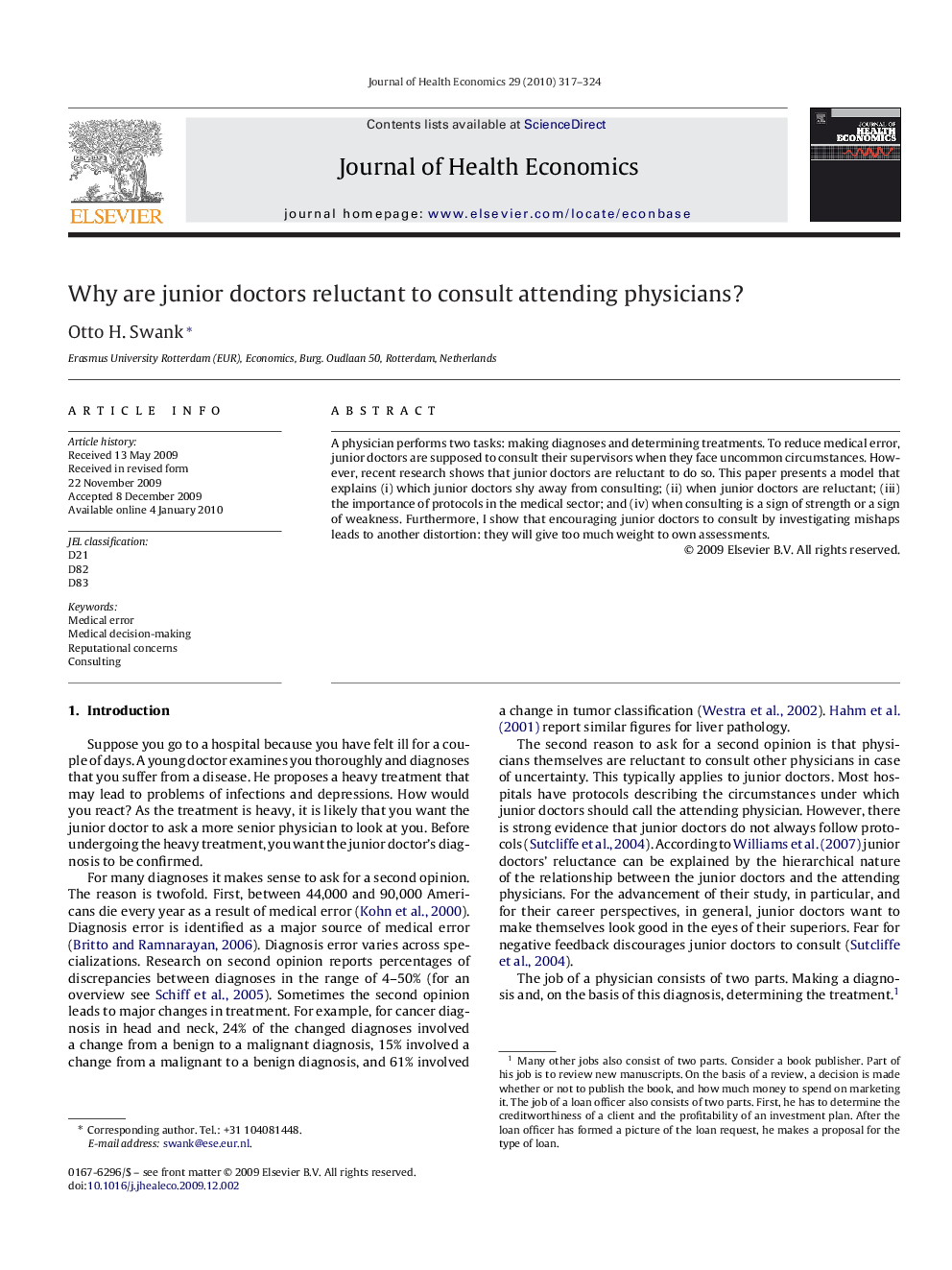| Article ID | Journal | Published Year | Pages | File Type |
|---|---|---|---|---|
| 962020 | Journal of Health Economics | 2010 | 8 Pages |
Abstract
A physician performs two tasks: making diagnoses and determining treatments. To reduce medical error, junior doctors are supposed to consult their supervisors when they face uncommon circumstances. However, recent research shows that junior doctors are reluctant to do so. This paper presents a model that explains (i) which junior doctors shy away from consulting; (ii) when junior doctors are reluctant; (iii) the importance of protocols in the medical sector; and (iv) when consulting is a sign of strength or a sign of weakness. Furthermore, I show that encouraging junior doctors to consult by investigating mishaps leads to another distortion: they will give too much weight to own assessments.
Related Topics
Health Sciences
Medicine and Dentistry
Public Health and Health Policy
Authors
Otto H. Swank,
